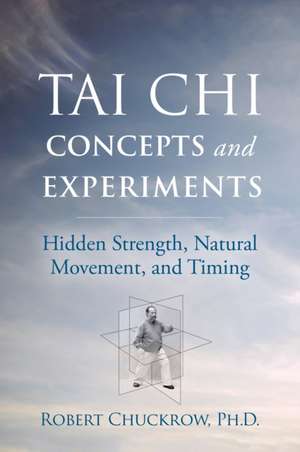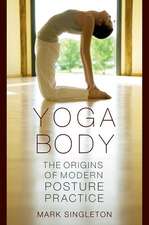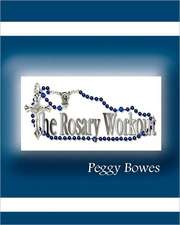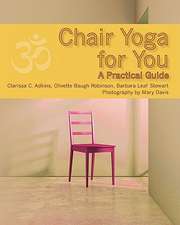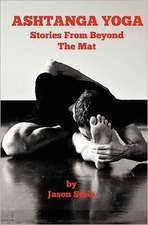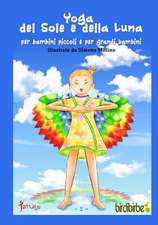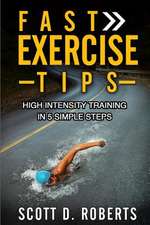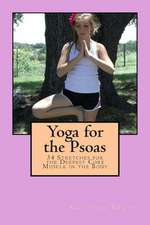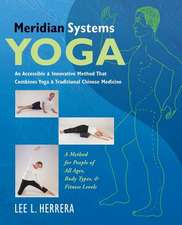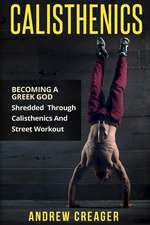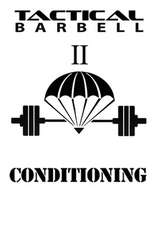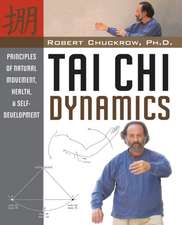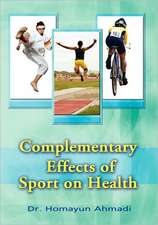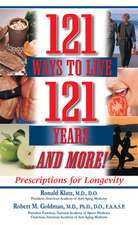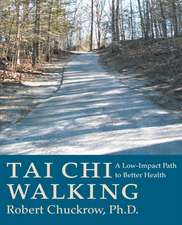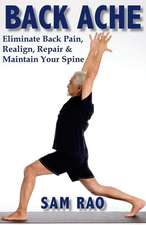Tai Chi Concepts and Experiments: Martial Science
Autor Robert Chuckrowen Limba Engleză Paperback – 14 apr 2021
The Tai Chi Experiments book aims to clarify and make accessible critical aspects of the art that are currently understood and manifested by only a small number of high-level practitioners.
Numerous step-by-step experiments are provided for readers to experience and perfect these critical tai chi aspects. Contents include:
- The meaning and importance of releasing tension in movement for stability, health, and spirituality.
- The differences between contractive and expansive strength including a promising mechanism for the nature of expansive strength.
- Numerous experiments for readers to recognize and experience expansive strength and to confirm that they have achieved it.
- Elucidation of famous master's sayings on mind, strength, and ch'i.
- Advantages of expansion over contraction in T'ai Chi.
- Health protocols using expansion including those for helping an excess curvature of the upper and lower spine and for relieving plantar fasciitiss.
- How to achieve optimal balance through an understanding of physical, anatomical, physiological, and mental factors.
- A detailed analysis of "rooting and redirecting" including physical and internal aspects.
- Understanding natural movement from physical, philosophical, health, and martial points of view.
This interdisciplinary book utilizes, elementary physics, physiology, anatomy, psychology, and spirituality. It contains detailed analyses and explanations for achieving internal, expansive strength known as nei jin, optimal timing, and natural movement.
| Toate formatele și edițiile | Preț | Express |
|---|---|---|
| Paperback (1) | 134.86 lei 3-5 săpt. | |
| YMAA Publication Center – 14 apr 2021 | 134.86 lei 3-5 săpt. | |
| Hardback (1) | 201.85 lei 3-5 săpt. | +21.68 lei 7-11 zile |
| YMAA Publication Center – 2 mai 2023 | 201.85 lei 3-5 săpt. | +21.68 lei 7-11 zile |
Preț: 134.86 lei
Nou
25.80€ • 26.94$ • 21.31£
Carte disponibilă
Livrare economică 25 martie-08 aprilie
Specificații
ISBN-10: 1594397414
Pagini: 240
Dimensiuni: 152 x 229 x 18 mm
Greutate: 0.36 kg
Editura: YMAA Publication Center
Seria Martial Science
Notă biografică
Robert Chuckrow, Ph.D.(experimental physics NYU) has been practicing tai chi since 1970. He is certified as a master teacher of Kinetic Awareness®, and has authored five books, notably The Tai Chi Book (YMAA, 1998).
Dr. Chuckrow has studied T'ai Chi, Ch'i Kung, and other movement and healing arts under masters such as Cheng, Man-ch'ing, William C. C. Chen, Elaine Summers, Alice Holtman, Harvy I. Sober, Kevin Harrington, and Chin Fan-siong.
Robert Chuckrow teaches and resides in Ossington, New York.
Cuprins
Dedication
Acknowledgments
Author's Background
Author's Note
Introduction
CHAPTER 1: Relax
- Cheng Man-ch'ing
- Yang Cheng-fu
- The Meaning of Relax
- Attaining Sung
- The Importance of Releasing Tension in Doing T'ai Chi Movement
- Push-Hands
- A Seeming Contradiction
- Shedding Some Light on the No-Strength Paradox
CHAPTER 2: Expansive Strength
- Background
- The Current View of Muscular Action
- Differences Between Contractive and Expansive Strength
- Some Experiential Evidence for Expansive Strength (Experiments You Can Do)
- A Promising Mechanism for Expansive Strength
CHAPTER 3: Swimming on Land
- Professor Cheng's Advice
- My Initial Skepticism
- My Eventual Realization
- The Mental Aspect
- "Zombie-Style T'ai Chi"
- Swimming on Land is Only a Tool for Recognizing Chin
CHAPTER 4: Elucidation of Famous Masters' Sayings on Strength
- Li, Chin, and Nei Chin
- Ch'i, Breath, and Internal and External Strength
- An Analysis of Cheng Man-ch'ing's Distinction Between Two Different Types of Strength
- An Attempt to Further Elucidate What Professor Cheng Wrote
- An Analysis of Yang Cheng-fu'sCommentary on Strength
- Breath and the Tan T'ien
- Health Aspects
- Martial Aspects
- Mind, Breath, Ch'i, and Strength
- Summary
CHAPTER 5: Advantages of Expansion Over Contraction in T'ai Chi
- Briskness of Regulation of Strength Compared for Both Types of Strength
- Alertness
- Endurance and Health Benefits
- Leverage and Fine-Motor Control
- Developing Bodily Unification
- Educating Bioelectrical Pathways
- Deception in Self-Defense
CHAPTER 6: Health Protocols Using Expansion
- Expansion for Reeducating Upper-Back Alignment
- Expansion for Reeducating the Lower Back
- Improving the Cervical Spine Using Slow, Relaxed Movement
- Expansion for Relieving Plantar Fasciitis
CHAPTER 7: Balance
- Gravity
- Leg Strength and Mobility
- Finding the Centers of the Feet
- Knee, Ankle, Arch Alignment
- Center of Mass
- Balance Experiments
- Vision
- Other Factors
CHAPTER 8: An Analysis of "Rooting and Redirecting"
- Conditions for Optimal Stability
- Internal Aspects
CHAPTER 9: Natural Movement
- Understanding Natural Movement
- Elements of Natural Movement
- Independence of Movement
- Reasons for Studying Natural Movement
- Examples of Unnatural Movement
- Tools for Studying Natural Movement
- Some Basic Physics Concepts
- Animate and Inanimate Natural Movement
CHAPTER 10: Stepping Like a Cat
- T'ai-Chi Stepping
- Yinand Yang
- Weight Transfer
- Difficulties in Stepping Like a Cat
- Order of Stepping: Heel First, Toe First, or Whole Foot?
- Practicing Stepping to the Side Using a Movement From the T'ai-Chi Form
- Stepping Naturally
- The Swing of the Rear Leg During Stepping Forward
- The Swing of the Forward Leg During Stepping Forward
- Stepping at the Right Moment
- Experiments for Attaining Proper Stepping
- Swing of the Arms During Walking
CHAPTER 11: Periodic Movement and Timing
- Periodic Motion
- Periodic Motion Terms
- Driven Periodic Motion
- Linear, Driven, Horizontal Periodic Motion ("Withdraw and Push")
- Analysis of the Motion in "Withdraw and Push"
- Importance of Timing of "Withdraw and Push"
- Circular Motion of Right Arm in "Single Whip"
- Centrifugal Effect
- Centrifugal Effect with Gravity
- Conical Pendulum
- "Swinging" About a Vertical Axis, Arms Swinging Side-to-Side
- Benefits of "Swinging"
- Fa Chin
- T'i Fang
CHAPTER 12: Additional Physical Concepts
- Constraints
- Rolling Without Slipping
CHAPTER 13: A Clarification of "Secret" Teachings Revealed by Cheng Man-ch'ing
- Basic Concepts
- Neutralizing
- Attacking
- Yearning K. Chen 's Alternative Way of Deflecting an Attack
- In Conclusion
CHAPTER 14: Non-Intention, Intention, and "a Hand is Not a Hand"
- Non-Intention
- The Mental Transmission of Intention
- "A Hand is Not a Hand"
- The Transmission of Intention Over a Distance
CHAPTER 15: Maximizing Your Progress in T'ai Chi
- Studying T'ai-Chi
- Obstacles to Learning T'ai-Chi
- Dealing with Obstacles
- Dangers of Overusing Images in Movement Arts
- Validating Your Progress
CHAPTER 16: Perspectives on T'ai Chi
- Internal Versus External Martial Arts
- Lifting Versus Lowering
- Empty / Full, Yin/ YangParadox
- Some Variations of the T'ai-Chi Symbol
- T'ai Chi "Weapons"
- Misinterpretations
- The Yang Long Form and Professor Cheng's Short Form
- The Popularization of T'ai Chi
Afterword
Appendix 1. Basics of Vector Addition
Appendix 2. Analysis of Forces in Rooting
Appendix 3. Analysis of Swing of Hanging Rods
About the Author
Bibliography
Index
